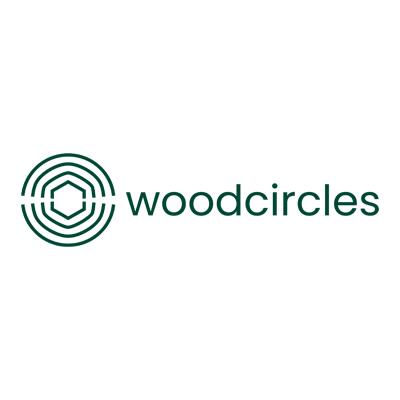WOODCIRCLES
Updated on 18.03.2025
Integrated, circular, and digitally supported sustainable solutions for waste minimisation and carbon capture in buildings and the construction sector.

Leading organisation/partner
Danish Technological Institute
Cities involved
Rotterdam (The Netherlands), Tartu (Estonia), Turin (Italy)
Scope and objectives
To decrease the GHG emissions, waste generation, and materials consumption of the European construction sector by increasing the circular use and exploitation of wood in construction
Key services provided by the project
Technical assistance, dissemination, analysis of regulation
Key deliverables
- Design for disassembly analysis - An analysis of design for disassembly solutions applied in construction projects throughout Europe and beyond.
- A wood-based building system optimized for adaptability, disassembly and longevity.
- A design guide for the developed wood-based building system.
- A regulation analysis covering EU and Member State regulatory requirements in relation to demolition sites, wood-waste recycling, engineered wood products, wood fibre insulation, and building with products that incorporate recycled materials. Special focus is on the possibility of placing the developed materials on the European internal market.
- A travelling demonstration building touring partnering European cities to demonstrate and document the developed wood-based building system optimised for disassembly and other selected project outcomes. The building will be disassembled and reassembled in each city to demonstrate design for disassembly solutions.
- Litterature review of sustainability assessment of wood and wood-circularity in construction.
- Pilot city analysis - a comprehensive analysis of the local state of play concerning built environment circularity potential, urban development challenges and preconditions in the pilot cities: Rotterdam (Netherlands), Turin (Italy) and Tartu (Estonia).
- Recommendations for standardisation and regulation. Based on WOODCIRCLES learnings and knowledge generated, the project will provide recommendations for standardisation as well as policy recommendations.
- WOODCIRCLES Methodology and Toolkit. WOODCIRCLES develops a toolkit containing co-developed solutions and strategic options to tackle regulatory, planning and value chain bottlenecks in operating the circular wood infrastructure.
- Analyses and mapping of Urban Forest materials. Analysis and mapping of the quality and quantity of urban forest materials at both European and local level in the partner cities of ROTTERDAM, TORINO and TARTU.
- Digital solutions for Urban Forest resource estimation and forecasting
- Urban Sawmill prototype and demonstration. Technologies for an Urban Sawmill concept capable of reworking Urban Forest materials (wood waste) into value added engineered wood products will be prototyped and demonstrated.
- Guidelines for Urban Sawmill implementation will be developed considering adaptation for local conditions.
Description of future collaboration with CCRI-CSO
Envisaged cooperation with project funded under the same call: a joint policy brief with policy recommendations; co-organised event/conference with focus on circularity in construction; joint conference / event with relevant cluster 4 projects
CCRI relevant material
Strategies for salvaging and repurposing timber elements from existing buildings in the UK. Peer review and Open Access. DOI: https://doi.org/10.1016/j.jclepro.2024.144629. Authors: Godina, M., et.al. Journal of Cleaner Production. Elsevier. January, 2025
Main project stakeholders
Construction sector stakeholders
Participants
Danish Technological Institute
Waugh Thistleton Architects Ltd.
Stora Enso Oyj
University of Cambridge
Urbasofia SRL
Trimble
Enemaerke & Petersen A/S
Fundació ENT
Comune di Torino
EnviPark
Folkhem Trä AB
Woodfiber Aps
Amsterdam University of Applied Sciences
Gemeente Rotterdam
Fondazione ICONS
Tartu Linn
011h Sustainable Construction SL
Easyscience
Rotho Blaas SRL
Iren SPA




